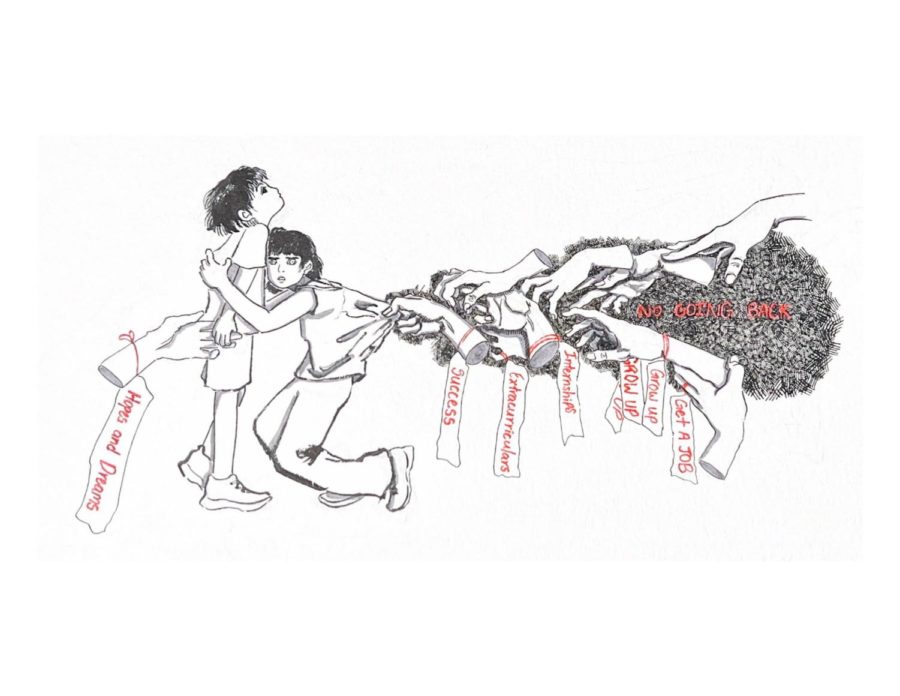UChicago is currently seeking to replace its dining contract with Aramark, which is set to expire at the end of this school year. The administration has hired a food service consulting firm and is in the process of reviewing bids from various providers. There has been some talk about the potential for much-needed change in the dining halls, but much less about the specifics of that change. One group, the Coalition for Ethical and Sustainable Dining—composed of the UChicago Climate Action Network (UCAN), the Fight for Just Food, the Phoenix Sustainability Initiative, and the University of Chicago Animal Welfare Society—has organized to get the message out about the ethical and environmental impacts of this upcoming decision.
“We [the different groups within the Coalition] don’t all want the same thing, but we figured out a way to get everything that we want to fit together,” UCAN member Claudia Fernandez said. The Fight for Just Food is concerned about the role the prospective food service providers play in perpetuating mass incarceration across America (some providers provide to and profit from private prisons). UCAN is advocating for a greater focus on sustainability initiatives and for a reduction in the dining hall’s reliance on animal agriculture. The Phoenix Sustainability Initiative is also a proponent of sustainable initiatives, particularly relating to the sourcing and disposal of food, and the Chicago Animal Welfare Society wishes to increase the number of vegetarian and vegan options in the dining hall.
Our current dining habits are destructive for a number of reasons. Large-scale animal agriculture has well-documented and far-reaching consequences, including demanding massive quantities of water to raise cattle and contributing extensively to global warming through methane-production by livestock and transportation of livestock (not usually kept very close to your local grocery store). In a statement, Fernandez said, “For the University to actually go green, it can’t just turn off the lights in the library or use hybrid shuttles. It has to change the way sources its food and it has to allow its students to pursue more sustainable eating habits.” By purchasing local and organic products and by adopting sustainability initiatives like composting, the dining hall can mitigate its environmental footprint, irrespective of which food service provider it selects. In closing, Fernandez said, “These sustainable initiatives are things which we can and should be doing, regardless of which food provider we select or whether or not we self-operate.”
Self-operation means that the University would take dining into its own hands. This would eliminate the necessity for transporting food long distances, contribute to the local economy, and ensure that a greater percentage of our food is organic, as opposed to the perhaps cheaper but less healthy and worse-tasting options provided by national food service companies. In addition, self-operation will make it easier for the University to begin sustainability initiatives and to directly respond to the desires of the community, particularly by providing additional vegetarian and vegan options.
Each of the potential food providers currently on the table offers local and sustainable options, but these are not always as good as they sound, and in one case Aramark (although at another university) included ice and soda as products that were “locally sourced.” The coalition stresses that these options are insufficient. Even though not all groups within the coalition believe self-operation is the best way to achieve their goals, the coalition as a whole still has it as a stated goal. Putting dining in the University’s control would dramatically improve our ability to provide quality food service without damaging the environment. Even those that are for self-operation, however, recognize that in the short term it may be necessary to sign a contract with a food service provider. As such, they are urging the University to sign a three-year (as opposed to a five-year) dining contract and to initiate plans to self-operate when that contract expires.
While it may be inevitable that the University will sign with a food service provider in the short-term, with a little work, the student body can ensure that we get better, healthier food at a lower cost to the environment.
Nick Aldridge is a first-year in the College.
CLARIFICATION – FEB. 21, 2016: Some sentences have been added or edited to clarify that not all groups withing the coalition believe self-operation is the best way to achieve their goals.








